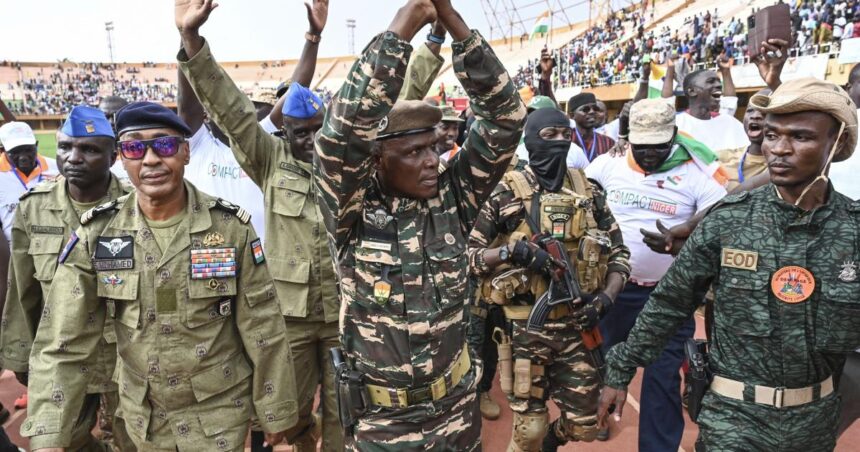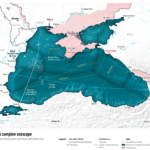The DIIS policy brief from September 2024 provides an in-depth analysis of the evolving security landscape in the Sahel, particularly focusing on Niger in the wake of the 2023 military coup that ousted President Mohamed Bazoum. For over a decade, Niger had been a cornerstone of EU and US security efforts in the region, seen as a relatively stable partner compared to its neighbors, Mali and Burkina Faso, where French and international forces were facing increasing difficulties. The coup in Niger, however, forced a reevaluation of Western strategies, as the political and security landscape shifted rapidly with the new military junta assuming control and pursuing a different path in its foreign partnerships.
Before the coup, Niger’s strategic importance had only grown as other nations in the Sahel saw increasing instability and the withdrawal of foreign forces. With Mali and Burkina Faso distancing themselves from French and Western military support, Niger became the “last man standing” for the EU and US, who relied on the country for counterterrorism operations and broader security cooperation. Under Bazoum and his predecessor Mahamadou Issoufou, Niger had earned a reputation for its relatively competent military and willingness to engage in security training and cooperation with foreign partners. The perception of “Fortress Niger” was widespread among Western diplomats and security officials, who saw the country as a bulwark against the spread of Islamist extremism and instability in the region.
However, beneath the surface of this cooperative relationship, there were significant risks and tensions that Western partners either underestimated or misunderstood. The coup was driven by both immediate political concerns—General Abderrahmane Tchiani, the coup leader, feared scrutiny and removal amid anticorruption efforts—and deeper issues related to Niger’s military and political culture. Niger has a long history of military coups, and the army’s intervention in politics is seen by many within the military as part of their role in maintaining the stability of the republic. This belief, dating back decades, reflects a pervasive view that the military has the right to “regulate” civilian leadership when it is perceived as corrupt or ineffective.
One of the key findings of the policy brief is the disconnect between how Western actors viewed their relationship with Niger and how Nigérien officials, particularly within the military, perceived foreign involvement. Interviews conducted before and after the coup reveal that while Western diplomats and military officials were generally confident in their partnerships with Niger, local perspectives were more varied. Some Nigérien officers, especially those in senior ranks, valued the training and assistance provided by foreign partners like the US and France, but others were more skeptical. Junior officers and enlisted personnel, in particular, were prone to populist ideas that criticized Western military presence, often seeing it as a form of neocolonial interference. This mistrust was further fueled by rumors—though unsubstantiated—that French forces were acting independently of Niger’s military and might even be colluding with jihadist groups.
The rapid deterioration of Niger’s relationships with its Western partners following the coup was stark. The military junta, the Conseil National pour la Sauvegarde de la Patrie (CNSP), quickly severed ties with many of Niger’s previous security partners, including the US and France. French troops were ordered to leave within weeks, and by March 2024, after a failed diplomatic mission by high-ranking US officials, American forces were also on their way out. In place of Western assistance, Niger has begun to cultivate new partnerships, most notably with Russia. While Russian military involvement in Niger is not yet on the scale seen in Mali—where Russian mercenaries play a significant role—there are concerns that this shift signals a broader realignment of Niger’s foreign policy away from the West.
The policy brief also sheds light on the underlying reasons for the coup and the broader regional implications. Niger’s preference for bilateral security relationships rather than multilateral ones, as well as its relatively strong military and weak civilian institutions, created a fragile political balance. President Bazoum’s government was seen as competent by the international community, but internally there were signs of tension, particularly between Bazoum and his predecessor Issoufou. Some Nigérien observers believed that Issoufou was maneuvering behind the scenes to retain influence over the country’s politics, and these internal political struggles likely contributed to the instability that culminated in the coup.
The brief makes several recommendations for how the EU and US should adjust their security strategies in the Sahel in light of these developments. First, it emphasizes the need for building deeper, more resilient relationships with local security forces and governments. Trust is crucial, and Western partners must be able to maintain influence even when political circumstances change. This requires more than just training and equipment—it involves ongoing political engagement, a commitment to understanding local dynamics, and a willingness to adapt to new realities on the ground.
Second, the brief calls for more coherent and responsive security offers from Western actors. In the past, security assistance has sometimes been fragmented, with multiple countries and organizations providing overlapping or redundant support. Moving forward, the EU and US should focus on creating integrated, well-coordinated assistance programs that address the specific needs of local partners. This would help to avoid confusion and inefficiency, while also strengthening the overall impact of foreign assistance.
Finally, the brief highlights the importance of long-term planning and consistency in engagement. The situation in Niger underscores how quickly foreign partnerships can unravel when political instability strikes. Western actors need to be prepared for such eventualities by maintaining a consistent presence in the region, both in terms of resourcing and personnel. This long-term commitment would help to build stronger partnerships that can withstand the shocks of political upheaval, while also providing a platform for ongoing dialogue and cooperation.
In summary, the policy brief suggests that the West’s approach to security in the Sahel needs to evolve in response to the realities on the ground, particularly in light of the events in Niger. The rapid shift in Niger’s political landscape, and the corresponding change in its foreign partnerships, underscores the fragility of security cooperation in the region. Going forward, Western actors will need to adapt their strategies, focusing on building deeper relationships, creating coherent assistance programs, and maintaining long-term engagement to navigate the complex and shifting political environment in the Sahel.







